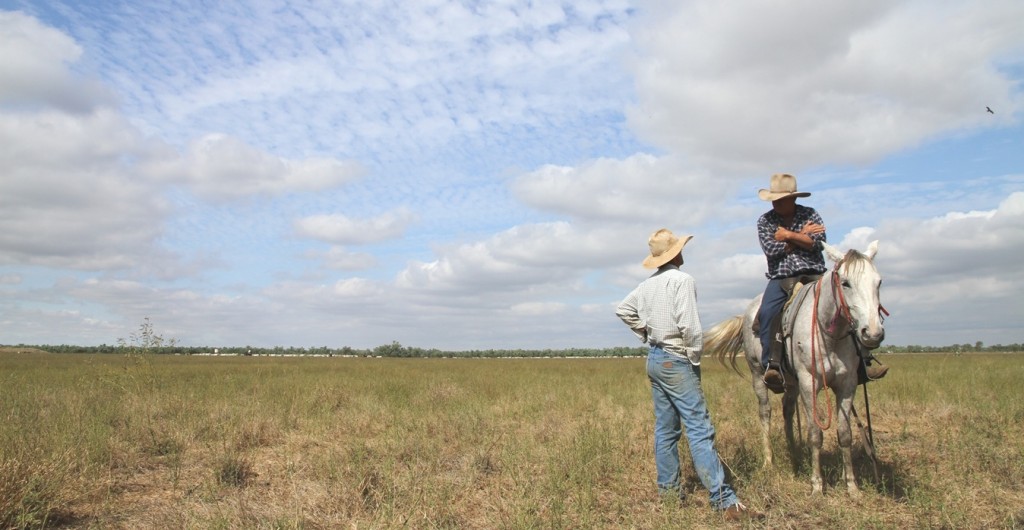Latest listings on Jobs Central
- Station Manager, Murrayfield – Indigenous Land Sea Corp.
- Feed Mill Leading Hand, Chinchilla – Stanbroke
- Territory Sales Manager, NSW – Leader Products
- Business Analyst, Agribusiness – Greenleaf
- Livestock Supervisor, Joanna Plains – Central Agri Group
- Chief Executive Officer, Cattle Council – via Rimfire
- Assistant Manager, Hillgrove – Kenny’s Creek Angus
- Group Quality Assurance Manager – Greenham
- Livestock Foreperson, Caroona Feedlot – JBS
- Cropping / Operations Manager – via Rimfire
- Graduate Program 2020 – Lawson Grains
Click here to access these and other exciting meat and livestock supply chain jobs currently listed on Jobs Central.

THE majority of Australia’s business managers are putting staff acquisition, staff retention and professional development for their staff at the top of their priority list for 2019, a recent recruitment survey has shown.
A company’s success is most dependent on the performance of its staff, which emphasises the importance of talent management for any agricultural business – large or small. This means not just recruiting individuals with the right skills, but also further developing the skill-sets of existing staff and retaining those top performers.
As businesses endeavour to explore new ways to streamline business practices, updating internal policies and procedures – looking after employees often comes in second on the list of priorities.
In order to remain competitive in today’s market, agricultural businesses need to adapt quickly to change and streamline their internal procedures to maximise on their potential, while still focusing on turning a profit and expanding their market share.
In order to achieve this, businesses will need to foster their high-achieving staff members, as well as continue to recruit top talent.
With retention a key priority, employers should review their strategies for retaining their staff within the organisation. Here’s eight areas to focus on, for starters:
Hire for company fit: Employee retention begins with employee’s very first interaction with the business – regardless of whether it is a small grazing enterprise with only a couple of staff, or a feedlot employing 35. While conducting an interview, apart from skills and experience, employers also need to analyse if the candidate is a good ‘cultural fit’ for the company. Focus on hiring a candidate whose mindset, personality traits and work style is in alignment with the business’s culture and values.
Start communicating: Employers need to clearly communicate the business’s vision and mission to their staff on a regular basis. Face-to-face meetings, performance feedback and creating a sense of authority enables employees to retain their workforce for a longer run. A printed position description and a couple KPI metrics are not sufficient enough for creating loyal employees.
Coach: Most of the time, employees leave managers – not the companies. Strengthening senior leadership with effective talent management strategies via setting effective goals, feedback and recognition, valuation and authority and professional growth is the key to a productive engaged and loyal workforce.
Flexible working opportunities: Flexible work routines are becoming more widely-accepted in all types of workplaces, including agriculture. Ensuring a good work-life balance with flexible work schedules is top of the list for many candidates and staff. Policies such as effective scheduling of workload are essentials to keep employees happy, engaged and productive.
Growth opportunities: The absence of clear professional goals and growth opportunities are one of the major reasons why employees leave a busines. Programs such as skill training, financial assistance for higher education, and internal promotions boost employee motivation for a longer run.
Regular performance evaluation: Performance appraisals work wonders when it comes to employee motivation and retention. Regular work evaluation and feedback not only enhances communication between senior management and employees, but it also provides a sense of valuation to the existing workforce. Being able to relate how their work has contributed to company growth and how valuable they are instils a sense of responsibility among workers and motivates them to do better.
Rewards: Rewards beyond salary incentives are another motivator for employees. Recognition for outstanding performance, financial rewards and innovative ideas to make employees proud of their accomplishments are few ways to make staff feel secure, valued and successful.
Exit interviews: Identify the reasons why employees leave the company allows a manager to strengthen a business’s retention strategy. Equally, understanding why employees stay is also important to focus on, in help employers sustain existing workforce.
Staff retention should be taken as a collective approach to cultivating a company culture which motivates upskilling, knowledge-sharing, talent rewards, a healthy work-life balance and a sense of mutual commitment.
These are all building blocks for a successful employee retention program.
Source: Meat Processors Pty Ltd – Managed Workforce



HAVE YOUR SAY